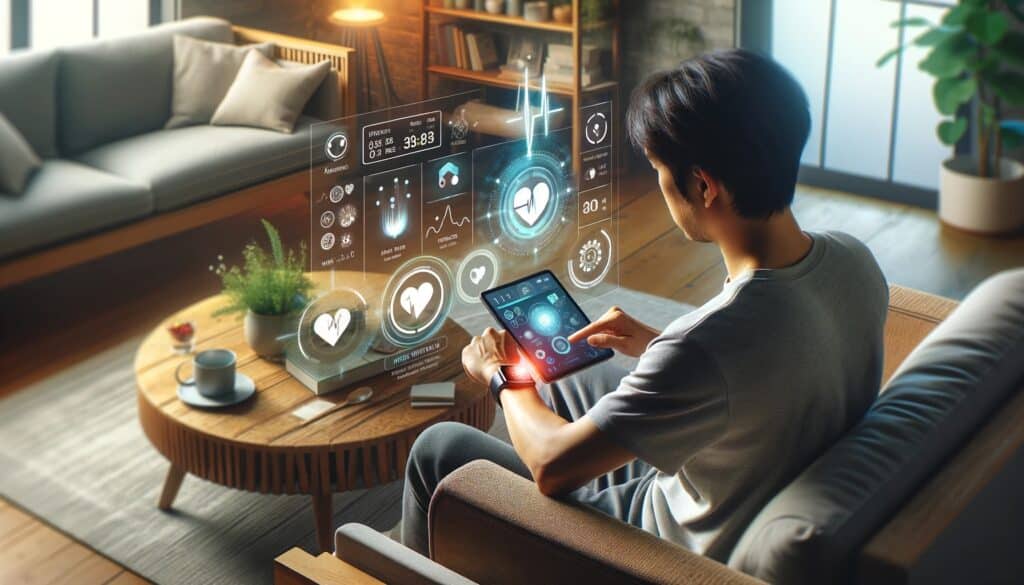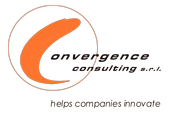
Introduction
In today’s rapidly evolving digital landscape, two technological trends are making significant strides: the Internet of Things (IoT) and the Internet of Medical Things (IoMT). While they share a common foundation in interconnectivity and smart technology, IoT and IoMT differ fundamentally in application, impact, and innovation. As the CEO of Convergence Consulting, a product design and development leader, understanding these differences is crucial for staying ahead in the industry and leveraging these technologies for optimal client solutions.
The Essence of IoT and IoMT
The Internet of Things (IoT) refers to the vast network of connected devices communicating and exchanging data. This encompasses everything from household appliances and vehicles to industrial equipment. IoT’s primary goal is to enhance efficiency, automation, and convenience in various sectors, including manufacturing, transportation, and home automation.
On the other hand, the Internet of Medical Things (IoMT) is a subset of IoT, focusing specifically on the healthcare sector. It includes medical devices and applications that connect to healthcare IT systems via online networks. IoMT aims to improve patient outcomes, streamline healthcare processes, and foster personalized medicine through technology such as wearable health monitors, remote patient monitoring devices, and smart medical equipment.
Key Differences
- Application and Focus: While IoT spans a broad range of industries, IoMT is exclusively healthcare-oriented. IoT enhances general processes and lifestyle, whereas IoMT directly impacts patient care and health management.
- Data Sensitivity and Security: In IoMT, data security is paramount due to the sensitive nature of health information. While IoT also requires security measures, the implications of data breaches in IoMT are far more significant, often involving patient privacy and regulatory compliance.
- Precision and Reliability: IoMT devices demand higher accuracy and reliability. Any malfunction in medical devices can have life-threatening consequences, unlike most IoT devices, where malfunctions might result in inconvenience or economic loss.
- Regulatory Compliance: IoMT is subject to stringent regulatory standards like HIPAA in the USA or the GDPR in Europe. While regulated, IoT faces less stringent controls than the medical sector.
- Innovation and Research: IoMT drives significant research in personalized medicine and predictive analytics. IoT, while innovative, often focuses more on improving existing technologies and processes.
The Emergence of Internet of Medical Things (IoMT): A Historical Context
The IoMT is not an overnight sensation. Its roots can be traced back to the early 2000s, with the advent of wireless technology and the internet. Gradually, medical devices began to incorporate connectivity features, leading to remote monitoring and data analysis capabilities. This evolution mirrors the broader trajectory of the Internet of Things (IoT), where everyday objects are becoming smarter and interconnected.
What is the Internet of Medical Things?
The Internet of Medical Things (IoMT) refers to a connected infrastructure of medical devices, software applications, health systems, and services. This network collects and shares healthcare data, offering a more integrated and holistic approach to patient care. It includes wearable devices, implanted sensors, and all forms of medical equipment connected to the healthcare IT system.
IoMT Today: Scope and Applications
IoMT encompasses a wide range of devices, from wearable fitness trackers to sophisticated hospital equipment. These devices collect vital health data, which is then transmitted, analyzed, and used to make informed medical decisions. Key applications include:
- Remote Patient Monitoring: Devices like heart rate monitors and blood glucose meters allow patients to be monitored outside traditional clinical settings, enhancing patient convenience and reducing hospital readmissions.
- Personal Healthcare Management: Wearables and mobile apps empower individuals to manage their own health, promoting wellness and preventive care.
- Clinical Efficiency: IoMT devices in hospitals automate routine tasks, streamline operations, and improve patient care through real-time data.
The Benefits of the Internet of Medical Things (IoMT)
- Enhanced Patient Monitoring: IoMT devices enable continuous monitoring of patients’ health, providing real-time data that can lead to more accurate diagnoses and timely interventions.
- Improved Patient Engagement: Patients can actively participate in their healthcare journey with devices that track their health and provide feedback.
- Cost Reduction: IoMT reduces hospital stays and readmissions, lowering healthcare costs.
- Data-Driven Decisions: The vast amount of data generated leads to more informed decisions, personalized treatment plans, and predictive analytics for future health risks.
Future of IoMT and Healthcare
The future of IoMT is incredibly promising. We anticipate advancements in artificial intelligence, machine learning, and nanotechnology to enhance IoMT devices’ capabilities further. The integration of IoMT with telemedicine and personalized medicine is set to revolutionize patient care, making it more accessible, efficient, and tailored to individual needs.
Convergence Consulting: Your Partner in IoMT Innovation
As a leader in product design and development engineering, Convergence Consulting is uniquely positioned to help healthcare providers and organizations harness the power of IoMT. Our comprehensive approach covers everything from initial concept and analysis to design, prototyping, and the realization of finished products. With our expertise, we ensure that the IoMT solutions we develop are not only innovative but also practical, secure, and compliant with global standards.
Conclusion
The Internet of Medical Things is reshaping the healthcare landscape, offering unprecedented opportunities for enhancing patient care and reducing costs. At Convergence Consulting, we are committed to being at the forefront of this revolution, providing our clients with cutting-edge IoMT solutions. Whether you’re looking to develop a new medical device or integrate IoMT into your healthcare practice, our team of over 20 expert engineers is ready to assist you.
We invite you to join us on this exciting journey into the future of healthcare. Contact Convergence Consulting today to explore how we can collaborate to transform your healthcare technology needs into reality. Let’s innovate together for a healthier tomorrow!

Leave a Reply